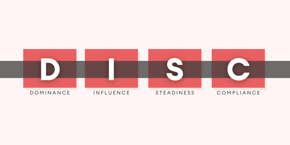When used correctly, CRM (Customer Relationship Management) software is a great way to store masses of information, manage accounts, spot trends and sell effectively.
However, incorrect use of a CRM system can be very damaging to a company’s reputation and your relationship with customers.
My colleague told me in his previous role he accidentally sent an email to Dear ‘Barry has died’, as the account manager had not deleted poor Barry’s record and had instead decided to leave what they thought was a helpful note under his first name. The person who received Barry’s email was less than impressed with the company, as you can imagine.
Below are 5 things you are doing wrong with your CRM and suggestions on how to rectify them.
1. Not using it
Often, CRM software is used by salespeople who are out on the road. Busy people. They might spend half their day traveling to a meeting and the other half of the day in it. Then, somehow, they find time to prepare for another two sales meetings the next day. Due to their busy schedule, they often haven’t got time to sit around entering what they’ve done into a CRM system. They are already focusing on what they are going to do next.
It sounds obvious, but one way to get around this is to make sure entering meeting notes into the CRM system is a planned part of your team’s routine.
A company I previously worked for had a policy whereby you had to type your meeting notes within 48 hours of the meeting, record them on the CRM system and email them to relevant management.
Doing so didn’t actually take much time at all, the only difficult part was getting into the habit, which happened relatively quickly anyway.
Another tip is to use the ‘seatbelt rule’: if you haven’t had time to update any notes or contact details during the meeting, make sure you do so before you have put your seatbelt on and drive away.
2. Not updating it
A CRM system needs to be constantly updated to ensure that its users are getting the best experience. It’s only as good as the information that has been put in.
Think of your CRM system like a car. You wouldn’t put diesel in a petrol engine, would you? The same goes for your data. Poor quality data can make your CRM system grind to a halt.
To ensure that your CRM system is running as smoothly as possible, give it a regular spring clean. One of my former employers recruited a marketing intern every so often to sift through the system, ensuring the data in there was still accurate, e.g. email addresses, employees’ job titles, even that the employees were still working there.
3. Not sufficiently training your staff
If you’ve ever been in a position where your company has invested in a new CRM system while you’ve been there, you’ll no doubt recall the training days you went through, the best practice guides you were given and the excitement at the possibility of not having to do admin again.
You were therefore in a great position to start using the software as you had been given good information on how to get the best out of it.
Fast-forward a year and the novelty has no doubt worn off. Employees have started leaving and you may find that new employees aren’t receiving the same training you received. Ss a result, they won’t be thinking your CRM system is amazing as you once did. They may not even realize how important it is and, as time goes on, the cycle will only get worse.
A good way to fight against this is to elect a CRM Champion. Someone who loves the system like they love their mother and subsequently is offended if you mistreat it.
Your CRM Champion can be responsible for making sure that the system is used in the best possible way. They would oversee training new starters and would be the ‘go to’ person whenever an employee has a question. Give them time to explore the system too and you may be surprised at the extra features that you don’t currently use that could help you in the future.
4. Not recording everything you can
A few years ago, I worked for the jobcentre as an Administrative Assistant. Every time we viewed a record on the CRM system, we had to write a note, for legal reasons, as to why we had viewed their information. For example, ‘the customer called to query an appointment’.
This was time-consuming (how many different customers you look at on your CRM system each day) but it did become second nature. It allowed whoever was viewing the customer’s file to see every single interaction that had ever existed between the jobseeker and the advisor.
As a general rule, why not ask employees to note down key points from every single conversation you have with a client on a notes section? This will build up a good overview and over time will enable you to see what customers you are talking to and are taking your time as well as which customers you aren’t talking too.
A big advantage of this is that if your star salesperson wins the lottery tomorrow and disappears to warmer climates then their replacement can see, at a glance, the latest information for the account in one convenient place. It helps with the business’ continuity.
5. Not having a proactive CRM system
So, you are using your CRM system, you are making sure it is constantly updated and spring cleaned, you have a CRM champion and you are recording as much information in there as you can… jobs done… great!
Oh wait, no it’s not. Now it’s time to actually mine the data in your CRM system to get some valuable information out. It’s time to decide what you want, export it into Excel, sort through it and try to remember how to use pivot tables.
I have a friend in another role who sets aside at least two days a month (10% of her working month for all of you stats fans) to pull out the figures from the CRM system they use into Excel and then prepare the sales figures for the monthly progress meeting.
Having a proactive CRM system could save them hours of tedious admin time. sales-i is one such system.
sales-i is a sales intelligence tool accessible as an app or through the web. It enables users to access their CRM whilst on the move. Adding and extracting information such as:
- Adding notes
- See the top 50 spending accounts
- Get notifications when a customer spend has dropped or when there are new potential up or cross-sell opportunities
- Generate in-depth sales reports in seconds, making meeting preparation a breeze.
sales-i can be especially effective for wholesale distributors or anyone selling multiple products to many customers. An intelligent, proactive CRM system makes it easier for salespeople to focus on what they do best, selling.
I hope you found this article an interesting read. I would love to hear your views, leave me a comment below.



